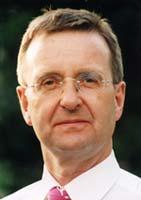
Interesting talk from Professor Tim Lang this evening on food security. (Read him on the Quotebank here.) He was spelling out the state of the world’s food supply and suggesting a few of the things that need to be done. A number of the points he raised were outside the scope of this blog, but there was enough about the seductive delusion of nationalism to set me thinking.
A compelling analysis looks at how much land it takes to feed each of us, according to the types of food we eat. Beef takes up more land than pork to produce the same amount of food energy, for example, and wheat takes up more than potatoes, so you can measure the land area represented by the contents of your basket in the supermarket. And if you do measure the land area in the overall British shopping basket, you find that we are taking up so much land that, if everyone else around the world did the same, we would need five more planets the size of our own to grow all the food we are eating. Tim Lang called this “six planet living”.
One of the attractions of this form of analysis is that it does not look at what we grow here in this country but what we eat. That is the definition that really matters. One of the problems of the discussion about climate change is that Britain can claim the “credit” for a reduction in greenhouse gas emissions because many of the goods we buy are now imported rather than made at home. Consumption patterns haven’t changed: we have merely exported our pollution. For those wedded to the national way of thinking, it may make some kind of sense, but actually it is the way to avoid dealing with the problem properly.
Now, whatever you think about food in general and environmental policy in particular, the six planet figure means that the British diet is only possible because most other people do not eat it. Thinking about the reputation of British cooking, maybe that is a good thing, but as a serious point, many people do not have enough to eat and actually cannot have enough to eat as long as things go on as they are.
So, what should change? Some people argue that the solution lies in the exploitation of technology to the full, to reduce the land area required. Others argue that we should eat different food and change our diet, which principally means eating less meat. This blog isn’t the place for that discussion, but there is something more to remark here. It is not enough to address food production and consumption without also addressing the framework for political decisions, too.
For one of the likely consequences of any new food policy is going to be changes to the way that we ourselves live. That’s not to say it is good or bad, merely that it is a fact. But can people be asked to make these changes without the confidence that they will make a difference? To be sure that they will indeed make a difference requires a means of delivering change in countries other than our own. A purely national way of thinking will not allow this. Tim Lang talked explicitly, if only briefly, about multi-level governance as a factor in solving the problem of food supply, but that is still a controversial idea in Britain. Although anyone who thinks that the UK can secure its own food supply on its own is truly living, if I can use the metaphor, on another planet.
